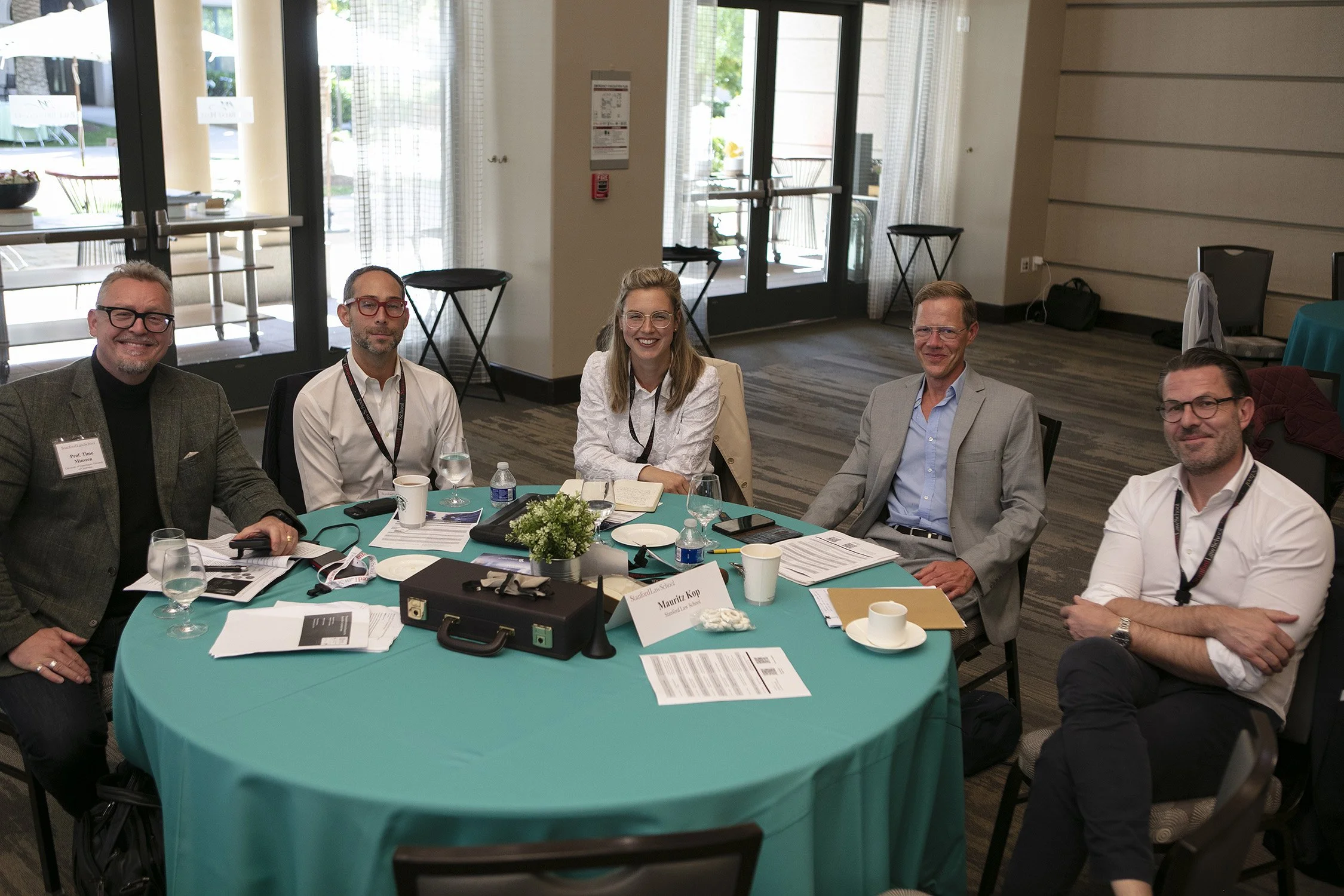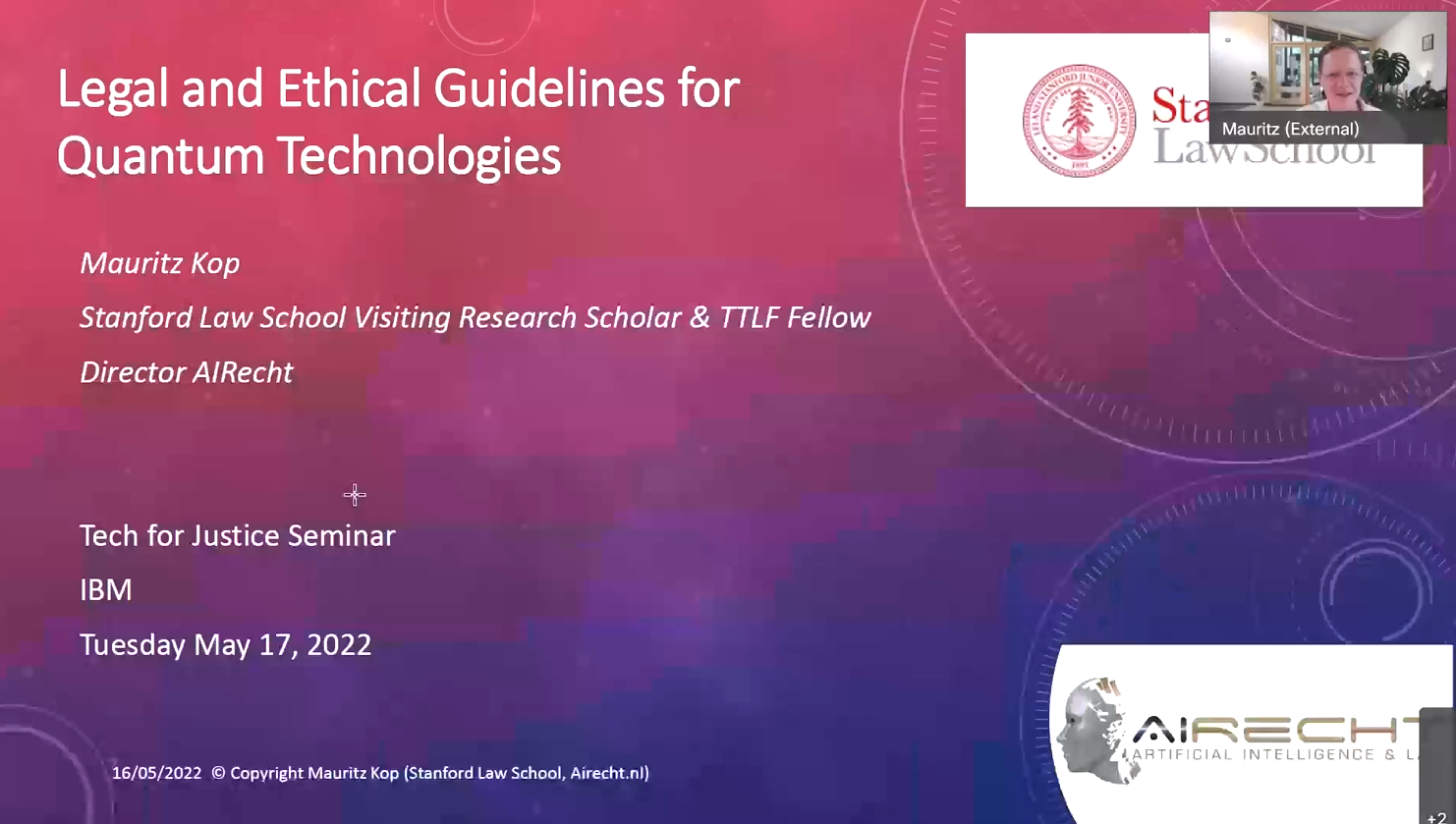Stanford, CA – Mauritz Kop, the Frm. Founding Executive Director of the Stanford Center for Responsible Quantum Technology (RQT), has accepted an invitation to serve as an expert on The von Neumann Commission. The announcement, made on February 1, 2025, positions Kop to contribute to a critical global dialogue at the intersection of quantum computing, artificial intelligence, and grand strategy. The Oxford-based, independent research commission is backed by the Eric and Wendy Schmidt Fund for Strategic Innovation and other key institutions. The von Neumann Commission’s inquiry will be multifaceted, addressing the core technical prospects for quantum acceleration, its strategic implications for the global balance of power, the risks to strategic stability, and the necessary governance frameworks to ensure responsible development. The Commission's investigation is set against the backdrop of a new technological paradigm—the convergence of quantum and AI—and is informed by the historical legacy of its namesake, the strategic vision of its sponsors, and the vital perspectives of its experts.
The Quantum-AI Convergence: A New Technological Paradigm
At the heart of The von Neumann Commission's inquiry is the powerful synergy between quantum computing and artificial intelligence. This convergence is not merely additive; it is a cross-pollination that promises to redefine the boundaries of both fields. To understand this, one must first grasp the fundamental difference between classical and quantum computation.
Classical computers, from supercomputers to smartphones, process information using bits, which can exist in one of two definite states: 0 or 1. Quantum computing, by contrast, operates on the principles of quantum mechanics. It uses qubits, which can exist in a state of superposition—representing both 0 and 1 simultaneously. This property, combined with entanglement, where the state of one qubit is instantly correlated with another regardless of distance, allows quantum computers to explore a vast computational space and perform parallel calculations on an exponential scale.
Professor Kop’s Expertise as a von Neumann Commissioner
As a Commission expert, Professor Kop will contribute a multidisciplinary perspective grounded in his extensive research on the law, ethics, societal impact, and policy of quantum and AI. Professor Kop has advised numerous governments and international organizations on their quantum technology strategies, including the United States (notably the Department of State on its quantum foreign policy, U.S. Senators on quantum governance, and as a Guest Professor at the US Air Force Academy), Canada, the United Kingdom, and The Netherlands, as well as multilateral institutions such as the World Economic Forum (WEF), UNESCO, CERN, and the OECD. He has also provided expert guidance to the European Union on landmark AI legislation, including the EU AI Act and the Data Act. His specific contributions to The von Neumann Commission will draw from his expertise in:
● Geostrategy, Democracy, and Authoritarianism: Analyzing the strategic struggle between democratic and authoritarian models of technology governance. This includes his work in Foreign Policy and the Stanford-Vienna Transatlantic Technology Forum on forming a strategic tech alliance among democratic nations and his lectures at institutions like the Hoover Institution on the impact of quantum technologies on the global balance of power.
● Comparative Regulatory and Innovation Models: Analyzing the legal and policy differences between the US, EU, and China. His scholarship, including his "Ten principles for responsible quantum technology" in IOP Quantum Science and Technology, his “Establishing a Legal-Ethical Framework for Quantum Technology” at Yale University, and foundational articles at Harvard Berkman Klein and Nature, dissects these competing models and provides a crucial framework for navigating global strategic competition.
● China’s Quantum and AI Strategy: Providing in-depth analysis of China's legal, ethical, and policy landscape for quantum technologies. This includes evaluating the country's national strategy, its approach to dual use civil-military fusion, its influence on U.S. and E.U. national and economic security through China’s Digital Silk Road Initiative, and its comparative strengths and weaknesses in the global technology race, as analyzed in his “Towards an Atomic Agency for Quantum-AI” scholarship at the European Commission’s Futurium.
● National and Economic Security: Examining the role of export controls, rare earth and critical mineral supply chain vulnerability as published at the Stanford Program on Geopolitics, Technology, and Governance at CISAC / FSI, intellectual property law as published at Berkeley and the Max Planck Institute, and cybersecurity in managing the geostrategic dimensions of quantum technology. His work in these areas, including his contributions to forums like Tel Aviv University's Cyber Week, provides critical insights into protecting strategic assets.
● Standards and Governance: Contributing to the development of robust standards, certification protocols, and performance benchmarks to ensure the safety, reliability, and ethical implementation of these powerful technologies, drawing from lessons from nuclear governance, and from his conferences and seminars at Stanford, Fordham Law, Arizona State, Copenhagen, the Center for Quantum Networks (CQN) and the Centre for International Governance Innovation (CIGI) in Waterloo.
By integrating these insights, Kop will aid the Commission in formulating a holistic understanding of the challenges pertaining to systemic rivalry and great power competition ahead.
Meer lezen


